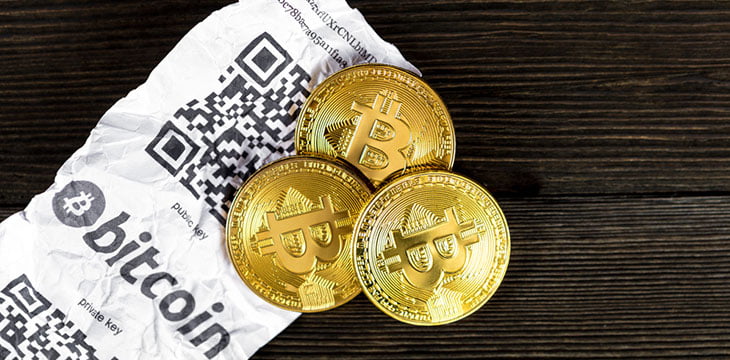|
Getting your Trinity Audio player ready...
|
Bitzlato, a digital currency exchange seized by European authorities earlier this year, has reopened withdrawals for users. With alleged ties to Russian dark web markets and scams, the Hong Kong-based exchange announced it’s now allowing users to withdraw 50% of their funds in BTC.
A crackdown in January culminated in the arrest of two of the founders of Bitzlato—Anatoly Legkodymov and Anton Shkurenko—as well as four other members of their team. While Shkurenko, who was nabbed in Russia, was released after questioning, Legkodymov is still detained in the United States after his arrest in Miami. Europol seized $19 million from the exchange days later.
Despite the crackdown and seizure, Bitzlato has announced that users can withdraw 50% of their funds in BTC. While it held other digital assets at the time it halted withdrawals, the exchange reportedly converted them to BTC to reduce costs associated with maintaining the various wallets.
Bitzlato set the minimum withdrawal at 0.001 BTC. With the platform being under seizure by Europol, the exchange is turning to a Telegram bot for withdrawals. Once users provide their emails, the bot verifies the credentials and sends them a code to the registered email.
Purported users on the Bitzlato Telegram group claimed to have managed to withdraw their funds to exchanges such as Bybit at press time. There is currently no confirmation whether the messages were from genuine users.
Users wary of withdrawing their assets at this time can hold on a little longer until Bitzlato restores its P2P trading services, the exchange has stated previously. Speaking to one outlet, a spokesperson for the exchange confirmed that it plans to restore all its services once it relaunches its P2P platform.
Bitzlato users will only access half of their funds for now. However, the exchange intends to ensure all the funds are returned in due course. It’s petitioning French authorities for the return of the $19 million seized by Europol, and if that doesn’t work out, it intends to refund users from its own purse.
“Lawyers have disputed the decision of the French government, and if the outcome is favorable, the funds will be returned […] If it does not work out, the users have to wait until the firm earns enough to compensate for the losses,” the spokesperson stated.
The Department of Justice (DOJ) and European authorities alleged that Bitzlato laundered a billion dollars for Hydra, once among the largest dark web markets in the world. As with many other digital asset criminal entities, both alleged and convicted, Bitzlato had deep ties to Binance. The U.S. Treasury alleged that Binance was one of Bitzlato’s top three counterparties.
Bitzlato founder denies charges in New York
While his exchange was reopening withdrawals, founder Legkodymov appeared before a New York court last week to face money laundering charges, which could see him land five years behind bars. He denied the charges and is being held without bail.
A Russian national residing in China, Legkodymov was arrested on January 17 in Miami over his role in operating Bitzlato.
The DOJ claimed that Legkodymov was aware of the crimes his exchange was perpetrating. Bitzlato deliberately required minimum identification from its users, propelling it to become “a haven for criminal proceeds and funds intended for use in criminal activity.”
Prosecutors further cited an internal document that described how the exchange handled dirty money without basic customer-vetting procedures.
Follow CoinGeek’s Crypto Crime Cartel series, which delves into the stream of groups—from BitMEX to Binance, Bitcoin.com, Blockstream, ShapeShift, Coinbase, Ripple, Ethereum,
FTX and Tether—who have co-opted the digital asset revolution and turned the industry into a minefield for naïve (and even experienced) players in the market.

 03-01-2026
03-01-2026 




